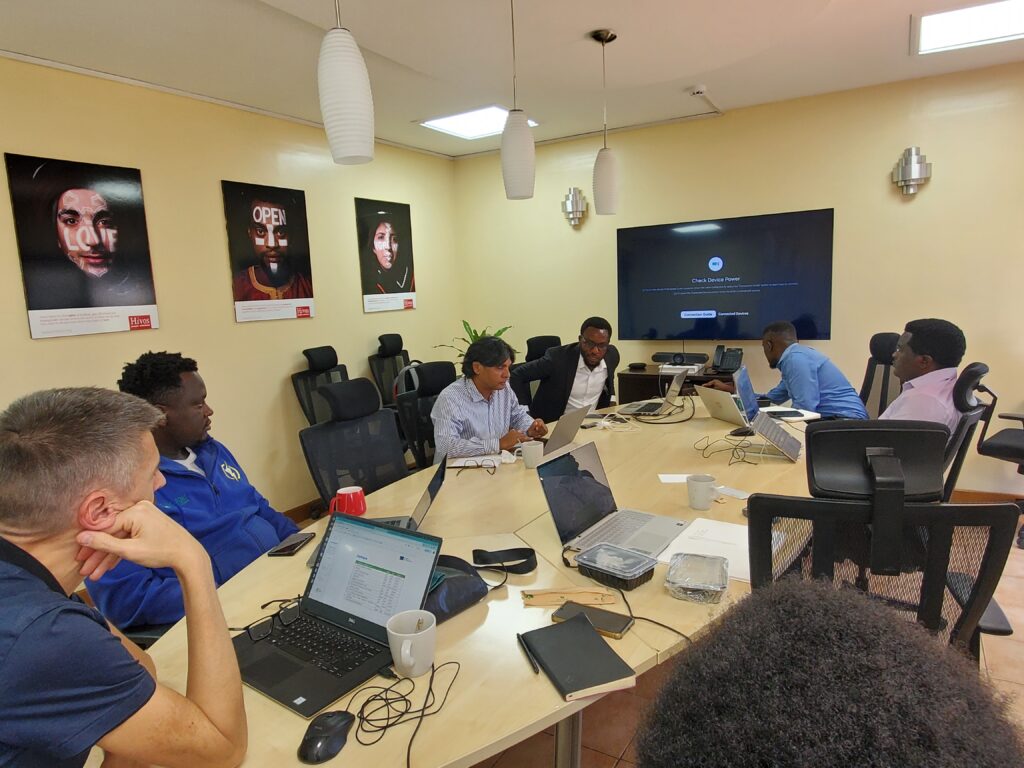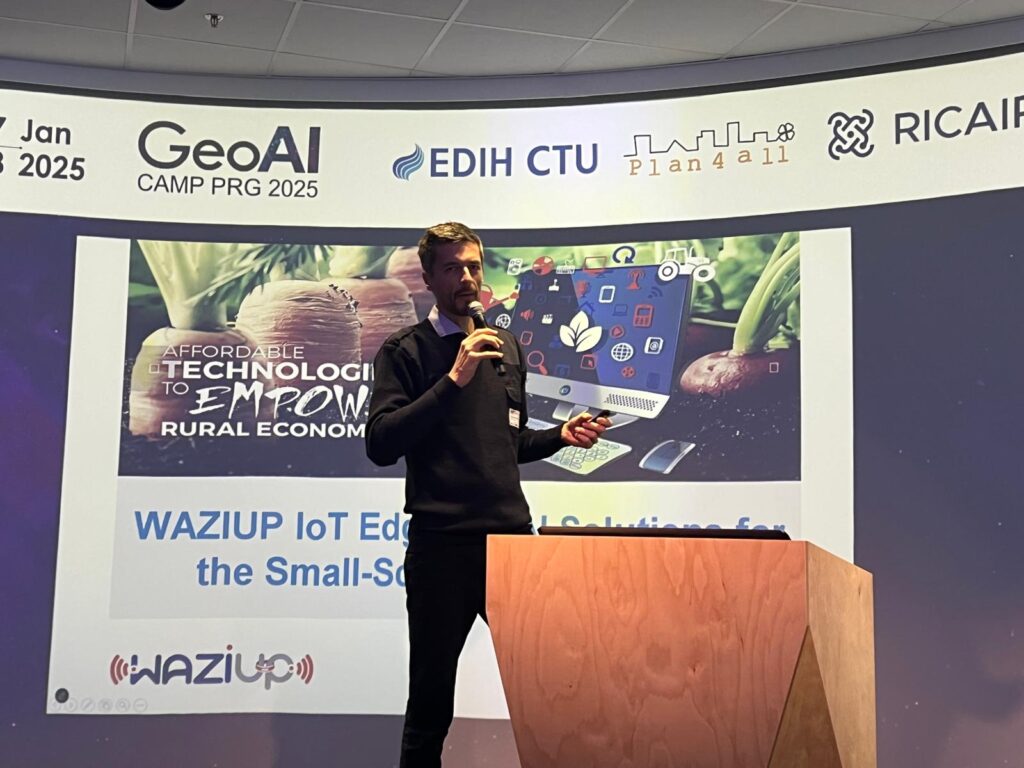When farmers, researchers, and government officials walked into the training room at SIDO in Mwanza on a quiet June morning, most of them were hearing about the KijaniSpace project for the very first time. The idea of linking satellites orbiting above Africa with fish cages floating in Lake Victoria, or with soil sensors buried in cassava fields, sounded ambitious – maybe even abstract.
But the Mini-Stakeholders Meeting was designed for just that: to spark curiosity, build trust, and make the project real for Tanzanian institutions. As one academic participant put it, “This meeting gave us a picture of how the project could touch our lives and institutions.” By the end of the day, every organization in the room had pledged to take part in the larger East Africa meeting to follow in July.
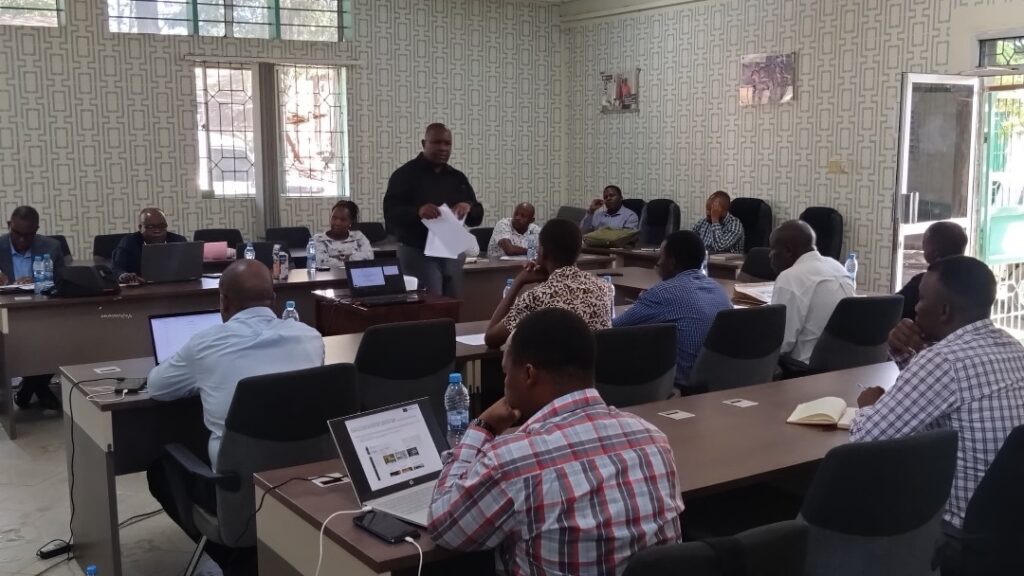
Mini-stakeholder meeting in June
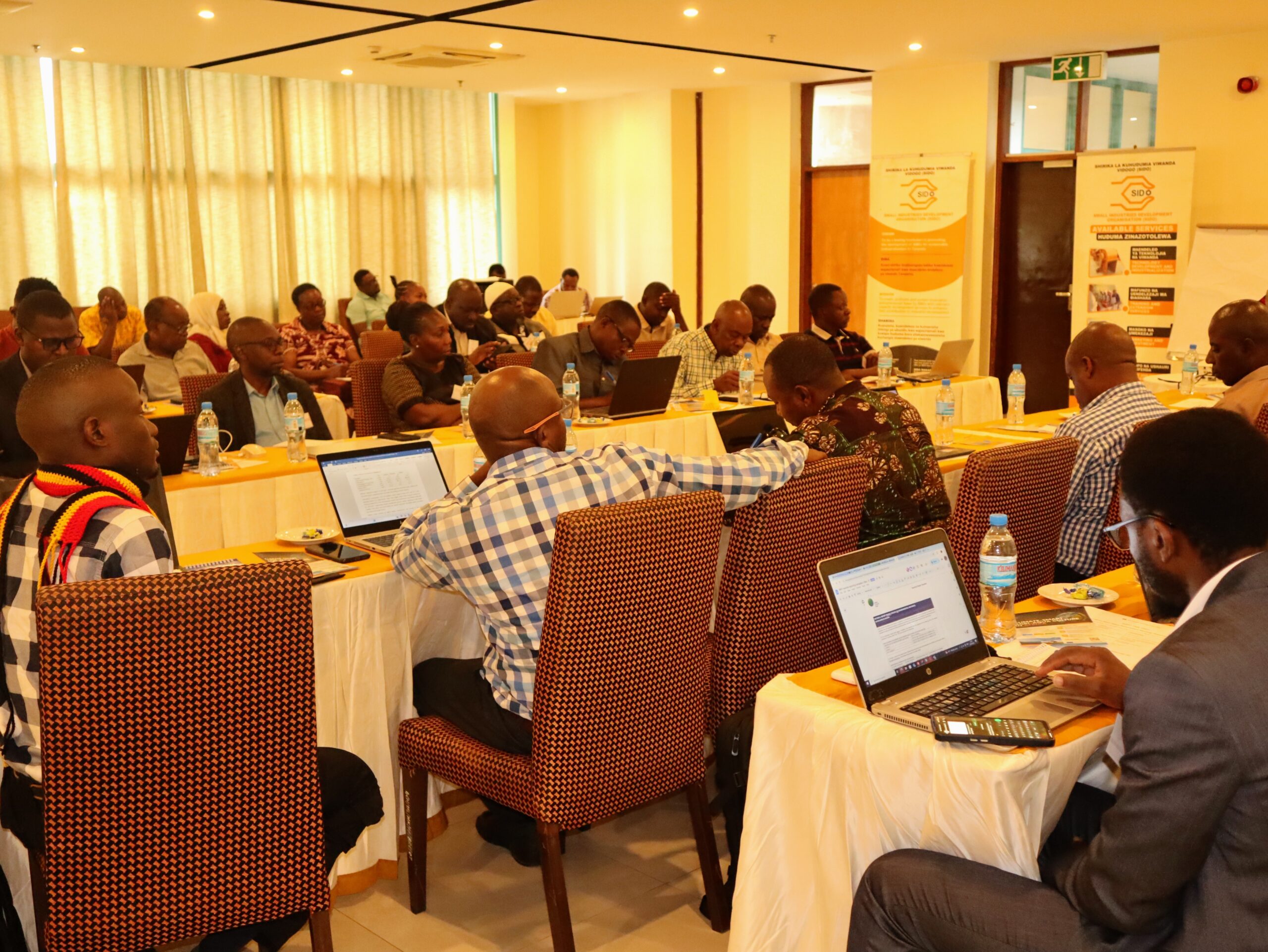
Bigger gathering in July
That bigger gathering, just weeks later, filled the halls of Mwanza’s Gold Crest Hotel with voices from Tanzania, Kenya, and Uganda. Local officials stood alongside smallholder farmers, researchers, and academics, listening to how their neighbors were already experimenting with climate-smart agriculture through KijaniSpace.
During the opening session, the Mwanza Regional Administrative Secretary emphasized the stakes:
“We cannot ignore the effects of climate change on our agriculture and fisheries. Projects like KijaniSpace bring tools we urgently need.”
The most striking moment came when participants visited a cage fish farm on Lake Victoria. Standing on the wooden walkways above the water, the group discussed the impacts of warming waters and shifting rainfall patterns. A female farmer asked the KijaniSpace team directly: “Can these technologies help us decide when to feed our fish and protect them when the water quality changes?”
Researchers from TARI and FETA echoed this need for practical applications. “We are ready to test these solutions and bring evidence for our farmers,” noted Dr. Paul Saidia from TARI, while an official from FETA added, “Training institutions must be part of this so that future farmers know how to use these tools.”
The workshops were not only about awareness, but also about commitment. Inspired by what they heard, Tanzanian institutions agreed to formalize their engagement through Memorandums of Understanding. As one participant concluded: “Signing an MoU is not just paperwork. It is our way to show we are ready to work together for long-term sustainability.”
Looking back, a few lessons stand out.
- Preparation matters: the mini-meeting in June made sure local stakeholders felt ready to contribute meaningfully in July.
- Peer learning is powerful: hearing from Kenyan and Ugandan partners gave Tanzanian actors confidence in their own role.
- And site visits transform abstract ideas into concrete action.
Most of all, the Mwanza journey showed that KijaniSpace is about more than satellites and sensors. It is about people coming together across borders, discovering common challenges, and daring to imagine a different future. From cautious first steps in June to a shared vision in July, Tanzania’s engagement in KijaniSpace is already planting the seeds of climate-smart innovation in the Lake Victoria Basin.
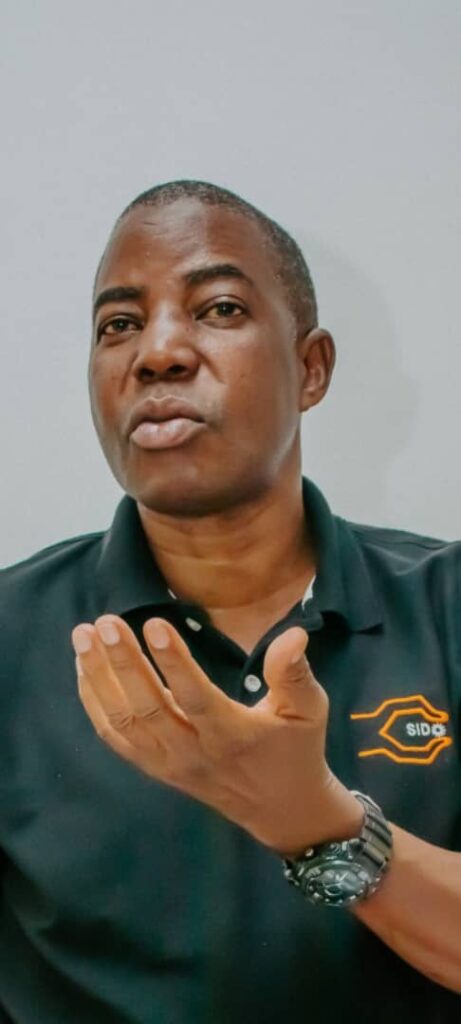
“The Mwanza Kijani Space engagements were both insightful and encouraging. The mini-stakeholders meeting served as a crucial preparatory step, allowing local institutions to first familiarize themselves with the project’s goals and align their activities accordingly. This early introduction created an environment of trust and readiness, which became evident in the full East Africa meeting where participation and commitment were remarkably high.
What stood out most was the strong sense of ownership expressed by Tanzanian stakeholders. From government offices to research institutions and farmer associations, there was a clear recognition of the value that Climate Smart Agriculture and space technology can bring to communities around Lake Victoria. The decision to move forward with Memorandums of Understanding reflects a genuine desire for sustainability and long-term collaboration.
Another key insight was the power of phased engagement: starting small with local mapping and mini-dialogues, then scaling up to regional cooperation. This approach ensured inclusivity, enhanced confidence, and maximized the project’s relevance to stakeholders’ realities.
Overall, these workshops underscored the importance of building strong partnerships, listening to diverse voices, and translating technology into actionable solutions for climate resilience and livelihoods improvement.”
Small industries development organisation (SIDO),
Mr Donge Jalphary, Regional Manager at SIDO Arusha
djalphary@yahoo.com, jalphary@sido.go.tz
